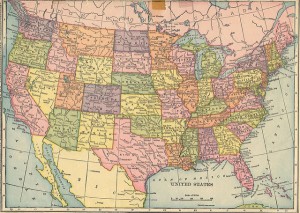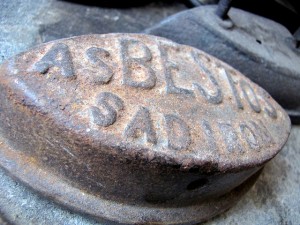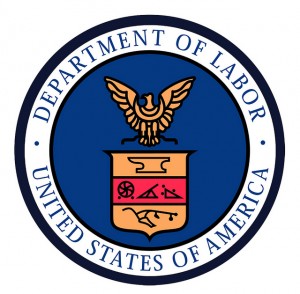One of the easiest ways to contribute to a law blog is to look at your e-mail outbox. What issues have been discussed or litigated lately? In this post, I am going to share a few thoughts about venue–the location of an injured worker’s formal hearing. Keep two distances in mind: 75 miles and 100 miles. The relevant statutes and regulations use both distances, but for different reasons. First, formal hearings typically take place within 75 miles of the claimant’s residence unless there is good cause for having the formal hearing elsewhere. See 20 C.F.R. § 702.337. The 75-mile rule is not an absolute edict; it is a guideline. The 100-mile rule applies to witnesses who are not parties to the litigation. Basically, courts cannot require non-party witness to travel more than 100 miles. Section 24 of the Longshore and Harbor Workers’ Compensation Act provides a 100-mile jurisdictional limit forRead more
Proving the Prima Facie Case Per the 5th Cir.’s New Decision
A new decision from the Fifth Circuit is important for Longshore and Defense Base Act cases because it explains the Section 20(a) presumption that runs in favor of claimants. Below, I first address the opinion, Ramsay Scarlett v. Director, OWCP. After that, I give my take away from the case. Ramsay Scarlett v. Dir., OWCP: The case involved an injured employee of Ramsay Scarlett & Company. The employee, Ferdinand Fabre, had worked for Ramsay Scarlet for 30 years (from 1969 to 1991). After Ramsay Scarlett, Mr. Fabre worked for Westway at the Port of Baton Rouge. Both Ramsay Scarlett and Westway were covered by the Longshore and Harbor Workers’ Compensation Act. In 2011, Mr. Fabre received an asbestosis diagnosis. The parties did not dispute the fact that Mr. Fabre was exposed to asbestos while working with Ramsay Scarlett. Accordingly, Mr. Fabre filed a claim for Longshore benefits, which he won.Read more
New Rules and Industry Notices in Longshore/DBA Claims
There is a lot going on in the Longshore and Defense Base Act community. Here is a run-down of new happenings at the Division of Longshore and Harbor Workers’ Compensation and the Office of Administrative Law Judges. Congratulations: First, congratulations are in order for Kristina Hall, the newest District Director at the Division of Longshore and Harbor Workers’ Compensation (DLHWC) office in Jacksonville, FL. Director Hall is very knowledgeable about the Longshore and Defense Base Acts. The DLHWC most definitely made a great choice. New Industry Notices: On June 12, 2015, the DLHWC issued Industry Notice No. 152. Essentially, the Industry Notice provides that parties can fill out a form that waives service of compensation orders in favor of electronic service. The idea is that payments will be made faster if the parties receive the order via e-mail instead of regular mail. The procedure for waiving service by mail canRead more
Jones Act Employees Could Not Sue a Dual-Listed Company
On August 12, 2014, the Eleventh Circuit published a decision discussing jurisdiction and business entity structure in the context of a Jones Act lawsuit. The plaintiffs were three injured sea workers, each of whom collected maintenance and cure. Those were the benefits that the injured sea workers and other employees agreed to in their contracts with Cunard Celtic Hotel Services, Ltd. The plaintiffs became unsatisfied with the extent of their maintenance and cure, believing that the contracts impermissibly limited their compensation. So, they filed a class action against Carnival Corporation and Carnival PLC. The Defendants’ corporate structure was particularly important here. Cunard operated “under the corporate umbrella of Carnival Corporation & PLC–the dual-listed company (“DLC”) comprised of Carnival Corporation (a Panamanian corporation headquartered in Miami, FL) and Carnival PLC (a British corporation headquartered in Southampton, England).” The district court dismissed the plaintiffs’ lawsuit, determining that the court did “not haveRead more
DOL Proposes Revisions to Rules of Practice Before the Office of Administrative Law Judges
The Department of Labor (“DOL”) has proposed to revise the Rules of Practice and Procedure for Administrative Hearings Before the Office of Administrative Law Judges. The Rules were enacted in 1983, but they have not been amended like the Federal Rules of Civil Procedure (“FRCP”). The DOL’s proposed changes are designed to reflect the changes in litigation and discovery over the past 28 years, provide clarity through the use of consistent terminology, and adequately address the expanded roles of Administrative Law Judges (“ALJ”). Congress has tasked ALJs with handling a wider variety of cases than anticipated when the Rules were promulgated in 1983 (including whistleblower and workplace retaliation cases), and the proposed revisions address the “more structured management and oversight” necessary to manage the complexities of these claims. Having thumbed through the changes, it is clear that the DOL wants the Rules to mimic the FRCP, both in form andRead more
Fifth Circuit Affirms Exclusion of Expert Affidavit in Section 905(b) Claim
Plaintiff, a longshoreman, was injured while unloading steel pipes from a vessel. A bundle of pipes shifted, rolled towards the longshoreman, and pinned his leg against a wall. The crush injury resulted in a below-the-knee amputation. Plaintiff filed a Section 905(b) claim against the vessel, its operator and its charterer. Under Section 905(b), a longshoreman may recover damages for injuries “caused by the negligence of a vessel.” The duties owed to longshoremen include the (1) turnover duty, (2) a duty to exercise reasonable care in the areas of the ship under active control of the vessel, and (3) a duty to intervene. Plaintiff designated Captain Joe Grace as his liability expert. Captain Grace’s report opined that Plaintiff’s injury was caused by the improper stowage of the pipes. Defendants then moved for summary judgment, arguing that Plaintiff failed to prove that they breached a duty owed to him. Plaintiff responded by filing aRead more
Prior Bad Acts Relevant to Damages and Future-Earnings Calculation
Plaintiff suffered serious on-the-job injuries when he fell from a cylindrical cell tower. Thereafter, Plaintiff and his wife sued Plaintiff’s employer, as well as other companies involved in Plaintiff’ work on the day he fell. After a trial, the jury returned a verdict that Plaintiff had not established the facts necessary to recover under the Jones Act, despite incurring nearly eleven million dollars in actual damages. On appeal to the United States Court of Appeals, Sixth Circuit, Plaintiff complained about the admission of an expert report which contained unflattering facts about Plaintiff’s past, including “extensive prior alcohol, methamphetamine, cocaine, and marijuana use; a failure to pay child support and termination of his parental rights; numerous arrests for alcohol intoxication, convictions for trafficking methamphetamine, driving while impaired, possession of marijuana, and failure to appear in court; and physical abuse leading to hospitalization.” The Sixth Circuit was satisfied that the expert’s opinionRead more
Which Federal Circuit’s Law Applies to a Defense Base Act Claim?
In the United States, there are twelve Courts of Appeals which are known as “circuit courts.” All fifty states, as well as the District of Columbia, are divided into various circuits. These courts are intermediate appellate courts; the last step before the Supreme Court of the United States. Over time, each circuit court has developed its own identity and reputation. The circuit courts can decide issues differently, sometimes because of geographical, political or ideological differences. When a circuit court decides an issue differently from a court in another circuit, a “split” is created. Lower courts in a circuit (i.e. district courts) are bound by their appellate court’s decisions. Those same courts are not bound by another circuit court’s decision. In the Defense Base Act (“DBA”) context, the applicable federal circuit law is determined by statute. Section 1653(b) of the DBA states: “Judicial proceedings provided under sections 18 and 21 of the Longshoremen’s and Harbor Workers’ Compensation ActRead more
Justice Scalia Questions Validity of Deference to Agency Interpretations
Yesterday, the Supreme Court of the United States issued its opinion in Talk America, Inc. v. Michigan Bell Telephone Co. While the opinion, which dealt in part with the Federal Communications Commission’s interpretation of its regulations, is not particularly relevant for Longshore and Harbor Workers’ Compensation Act claims, Justice Scalia’s concurrence is nonetheless interesting. Justice Scalia discusses whether the present rule regarding deference to an agency’s interpretation of a statute is valid. In doing so, the concurring Justice questions the validity of Auer v. Robbins, 519 U.S. 452 (1997), an agency deference case, which is an unanimous decision that Judge Scalia authored. The following is taken directly from the concurrence: “It is comforting to know that I would reach the Court’s result even without Auer. For while I have in the past uncritically accepted that rule, I have become increasingly doubtful of its validity. On the surface, it seems to be a natural corollary–indeed, an aRead more




